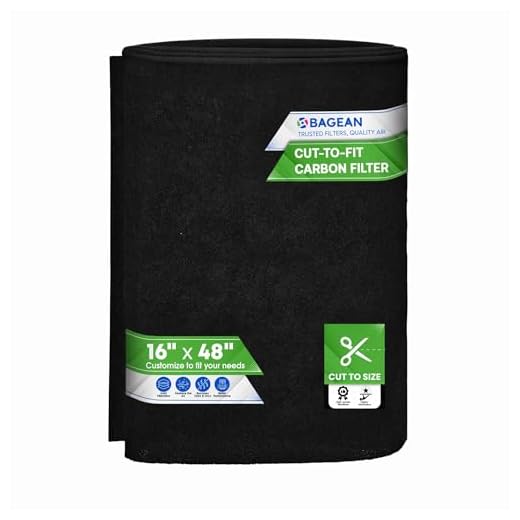




UV Water Purifiers
These devices leverage ultraviolet light to deactivate various microorganisms that may contribute to unpleasant odors in water. By targeting pathogens such as bacteria and viruses, they offer a method of purification that avoids the use of chemicals. This technology effectively neutralizes odors resulting from organic matter and biological contamination, making water more palatable for consumption and use.
Maintenance of UV water purifiers is relatively straightforward, with regular inspection and cleaning being key to maintaining effectiveness. These systems typically include a quartz sleeve that houses the UV lamp, which requires periodic cleaning to ensure optimal light transmission. Regularly checking the functionality of the UV light and adhering to the manufacturer’s guidelines on lamp replacement can help extend the life and efficiency of the system.
Role of UV Light in Eliminating Odors
Ultraviolet (UV) light plays a significant role in addressing unpleasant odors in water by targeting the microorganisms that contribute to these smells. Many odors arise from bacteria and other pathogens present in the water. The exposure to UV light effectively neutralizes these organisms, leading to a noticeable reduction in odor. This method does not rely on harsh chemicals, making it a safer alternative for households.
In addition to its ability to destroy odor-causing pathogens, UV light can help maintain the overall quality of water. By ensuring that harmful microorganisms are eliminated, UV purification contributes to a fresher taste in the water. Regular use of UV systems can enhance the drinking experience while also supporting the effectiveness of other filtration methods employed in conjunction with UV technology.
Maintenance Requirements
Proper maintenance of your water filter is essential to ensure effective odor reduction. Regularly checking filters and components for signs of wear or buildup can help maximize performance. Clean the housing and other accessible parts as per the manufacturer’s recommendations to prevent any bacterial growth or contamination. Additionally, keep an eye on the filter’s capacity and usage, as neglecting these aspects can result in diminished filtration quality over time.
Creating a maintenance schedule will simplify the process, allowing you to monitor filter lifespan and replace it when necessary. Many systems have indicator lights or reminders that signal when a change is needed, making it easier to stay on top of upkeep. Following the maintenance guidelines will ensure that your water filter operates effectively, consistently delivering fresh, odor-free water for your household.
Keeping Your Water Filter in Optimal Condition
Regular maintenance is essential for ensuring a water filter functions effectively over time. This involves periodic cleaning of the system as specified by the manufacturer. Many water filters have parts that can become clogged with sediment or minerals. Keeping these components clean not only enhances performance but also extends the lifespan of the filter.
Monitoring filter indicators can provide valuable information about when maintenance is needed. Some units may have alerts for filter saturation or when a cleaning cycle is necessary. Following the manufacturer’s guidelines for filter checks and replacements helps maintain optimal odor reduction in your water supply. This proactive approach can prevent unpleasant tastes and smells from developing due to neglect.
Filter Lifespan
The lifespan of a water filter varies significantly based on several factors, including the type of filter, usage, and water quality. Generally, activated carbon filters tend to last between six months to a year, while reverse osmosis systems may function optimally for two to five years, depending on maintenance and water conditions. Understanding these parameters helps users gauge when it’s necessary to replace filters to maintain effective odor reduction.
Regular monitoring of filter performance is critical. Some filters come equipped with indicators that signal when replacement is needed. In addition, noticeable changes in water taste or smell can be a sign that the filter has reached its limit. Establishing a replacement schedule based on the manufacturer’s guidelines and adhering to it ensures that your water stays fresh and clean.
Knowing When to Replace Your Filter
A water filter plays an essential role in ensuring the quality of the water you consume. Monitoring the filter’s effectiveness is crucial. Signs such as a change in taste, odor, or a noticeable decrease in water flow may indicate that the filter needs replacement. Most manufacturers provide a guideline for how often to change the filter, but factors like water quality and usage rate can influence this timeframe.
Regular maintenance can also help identify issues before they become problematic. Keeping an eye on any warning indicators from the filter system can save you from unwanted contaminants. If your filter has a built-in indicator, take its advice seriously. Even without one, it’s wise to follow a schedule based on usage to ensure optimal filtration.
FAQS
What are the main causes of odors in water?
Odors in water can be caused by various factors, including the presence of bacteria, organic material, sulfur compounds, and certain minerals.
How does a UV water purifier work to reduce odors?
A UV water purifier uses ultraviolet light to eliminate bacteria and other microorganisms that can contribute to unpleasant odors, effectively sterilizing the water.
What maintenance is required for a water filter that reduces odors?
Regular maintenance includes cleaning or replacing filters according to the manufacturer’s instructions, checking for leaks, and ensuring that the UV light is functioning properly.
How can I tell when it’s time to replace my water filter?
It’s time to replace your water filter when you notice a decline in water quality, such as persistent odors, decreased flow rate, or if the manufacturer indicates a specific lifespan for the filter.
Are there specific features I should look for in a water filter for odor reduction?
Look for filters that have activated carbon or UV purification, as these technologies are effective in removing odors. Additionally, check for certifications that verify the filter’s effectiveness in odor removal.
Related Links
How to Identify If Your Water Filter Improves Taste
How to Choose the Right Water Filter for Better Taste

